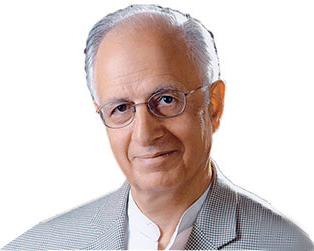
The Indian farmers’ movement brought together diverse farmers’ groups along with many women’s organizations and environmental associations
Don’t settle for corporate crumbs, change the system
By Arun Maira
 FIFTEEN years ago, Umesh and Rita Anand asked me to write a book explaining ‘civil society’ to leaders of business enterprises. I did not know then what ‘civil society’ is really. I knew the ambition of its leaders is to make the world better for everyone, especially those being left behind by the capitalist-state juggernaut. I had worked for 40 years in leadership roles in the business world and as a consultant to business leaders in the US and India. So, I wrote Transforming Capitalism: Business Leadership to Improve the World for Everyone, about what business leaders could do to make the world better for everyone, which the Anands kindly published.
FIFTEEN years ago, Umesh and Rita Anand asked me to write a book explaining ‘civil society’ to leaders of business enterprises. I did not know then what ‘civil society’ is really. I knew the ambition of its leaders is to make the world better for everyone, especially those being left behind by the capitalist-state juggernaut. I had worked for 40 years in leadership roles in the business world and as a consultant to business leaders in the US and India. So, I wrote Transforming Capitalism: Business Leadership to Improve the World for Everyone, about what business leaders could do to make the world better for everyone, which the Anands kindly published.
The condition of humanity and the environment has deteriorated further since then. Systemic failures of governance are evident: the climate crisis, the financial crisis in 2008, the inability of governments to respond equitably to the Covid-19 crisis, global economic stagnation and inflation, the collapse of geo-political governance with the war in Ukraine, and the impotency of institutions of global governance including the United Nations and the World Trade Organization (WTO).
As the Titanic sails to immanent disaster, civil society feels trapped in cabins below the deck. Its leaders bang against the floors of the stately cabins for powers above to change the ship’s course. To calm them, scraps of food are given from surpluses above. Like India’s CSR law requiring corporations to spend two percent of their profits on socially responsible work.
The world is in crisis. Capitalism is in crisis. Civil society is in crisis too.
Since I wrote Transforming Capitalism I have become engaged with many leaders of civil society. Leaders of NGOs sometimes think they are the leaders of civil society. Civil society is much broader in its scope. It includes diverse movements of change: labour unions, community associations, environmental protection movements and the like, and networks amongst them.
As a Member of the Planning Commission responsible for corporate affairs, I saw the divide in civil society. Many supported the law to impose the two percent CSR levy while some opposed it. Those who opposed it had been leading a movement, along with corporate statesmen, for corporations to report their performance holistically to society, and not only their financial performance to shareholders which corporate laws require. Their voluntary movement had almost got government support, when a business lobby, supported by many NGOs, proposed the two percent CSR law instead.
According to neo-liberal ideology “the business of business must be only business”. Therefore, business leaders must not take on responsibilities for ‘externalities’, such as the condition of society and the environment. A two percent levy on profits was easier for businesses to accept than the alternative of being held to account for how they made their profits. It was small change for appeasement of their sins. They could continue to demand more freedom from environmental regulations and labour laws for their ease of doing business and making profits.
FOUR CATEGORIES
Leaders of civil society and not-for-profit organizations fall into four categories: Protesters, who raise alarm about the condition of the planet and people, and protest that the powers who set the course of the ship, and make the rules, are unjust. Providers, who deliver relief at the ‘last mile’, reaching out to people in need whenever there is a crisis, and to the many the state is not reaching even when the economy is growing.
Enablers, who enable communities to “manage their commons”, take better care of their environment, and harness their resources to improve community health and education services, and enhance their livelihoods.
Knowledge creators, who understand the need for a paradigm shift, and research ideas emerging from communities which show how a new model of change — community-led and embedded in the local environment — is the way to change the course of the Titanic and solve the systemic problems that present theories of governance and economic management cannot. Knowledge with insight has great power to catalyze paradigm shifts.
FINANCIAL SUPPORT
All four types of civil society organizations need resources to sustain themselves, and all need an environment that enables civil society’s “ease of doing business”.
Financial support from others is the essence of the business model of providers, who are basically a channel passing on resources from corporations and governments to the people.
Enablers, who are catalysts of change in communities, enabling communities to harness their own resources more effectively, need less outside support. They do need some support from donors also interested in helping local communities to build their own capacities, rather than keeping them as beneficiaries of their charity.
Knowledge creators do not need financial support for providing relief on the ground. However, they do need some support to pay for their research activities. Philanthropists, corporations, and governments who provide them support would be concerned, understandably, that the research does not undermine their own power. Therefore, knowledge creators searching for ways to change the course of the Titanic must be careful not to be coopted as lobbyists for their funds’ providers.
Protesters against the Establishment naturally have a hard time getting resources from institutions in power. It is also disingenuous of them to expect that governments, who are expected to ensure stability of the economic and social system, should make it easier for them to do business.
When the two percent CSR law was mooted as an alternative to the national guidelines for reporting business responsibility, civil society was split. Providers supported the law because it would provide a mandated source of funds for their work.
Enablers did not object: they need some financial support too. Most protesters were happy: they thought the law was a “socialist” way of redistributing corporate profits, even though the amounts were very small. If they had taken a systemic view, they would have realized that the law did not change the fundamental narrative of business responsibility, and the Titanic has sailed on. Now they are protesting with even greater alarm that time is running out.
NATIONAL INTEREST
Confusion about the purpose of the enterprises is a challenge for business leaders who want to improve the world for everyone. When they take a road not taken by the herd they are pulled back by the market.
J.R.D. Tata, who was chairman of the Tata group for 50 years until the economic reforms of the 1990s, through India’s independence movement and the difficult years thereafter when India was building its own industrial capabilities, said that whenever he had a difficult decision to make, he would ask first what would be good for India, and then what would be good for Tatas. Whenever the decision was in the interests of India, it would turn out to be good for Tatas too in the long run, he said. The slogan of Tata Steel, the flagship company of the group, was, “We also make steel.”
When India joined the global capitalist caravan with the ‘liberalization’ of its own economy, the CEO of Tata Steel was asked by an analyst in New York at a quarterly analyst review, “When will Tata Steel stop being a socialist enterprise and become a genuine capitalist one?”
Business corporations cannot be ‘trustees’ of society and its environmental resources until their legal purpose is redefined. When Larry Fink, CEO of BlackRock, the world’s largest investment firm, asked all firms BlackRock invests in to adopt ESG principles, stock markets reacted and reminded him that the purpose of business corporations is the production of financial returns for investors.
‘Civil society’ organizations must remain tuned to their core values and be clear about the purpose of their existence. The commonly adopted nomenclature, ‘NGO’, does not explain their purpose. It says what they are not: Not government. Corporations are also not government.
Therefore, to distinguish themselves from corporations, NGOs must be legally ‘not-for-profit’ organizations. They are not for profit and non-governmental organizations which only says what they are not. This does not explain what they are and their purpose.
The fundamental purpose of civil society organizations is to change the course of the Titanic and improve the well-being of the people trapped ‘below deck’ by the prevalent paradigm of economic and societal governance. Labour unions do this too. So do movements of change with no legal status as ‘organizations’, like the Indian farmers’ movement which brought together diverse farmers’ groups along with many women’s organizations and environmental associations.
NGOs must learn to collaborate with others. They compete amongst themselves and other civil society ‘organizations’ too for more financial resources for their work. They want to scale up their organizations to serve greater numbers of beneficiaries. Whereas the real change the world needs is for the people ‘below’ — who are considered less ‘developed’ and mostly in the global South — to become the drivers of improvements in their own lives. They must also have greater power for fixing the rules of economic games, which large countries and capitalist corporations have monopolized.
Civil society organizations must rethink the fundamental purpose of their existence: it is not to provide relief, but to change the system. More ‘CSR’ will not change the world. Large movements of change are required to save the planet and make global governance fair for all citizens. Paradigms are changed by catalysts of movements, not by builders of organizations.
Arun Maira is the author of Transforming Systems: Why the World Needs a New Ethical Toolkit
Comments
Currently there are no Comments. Be first to write a comment!





